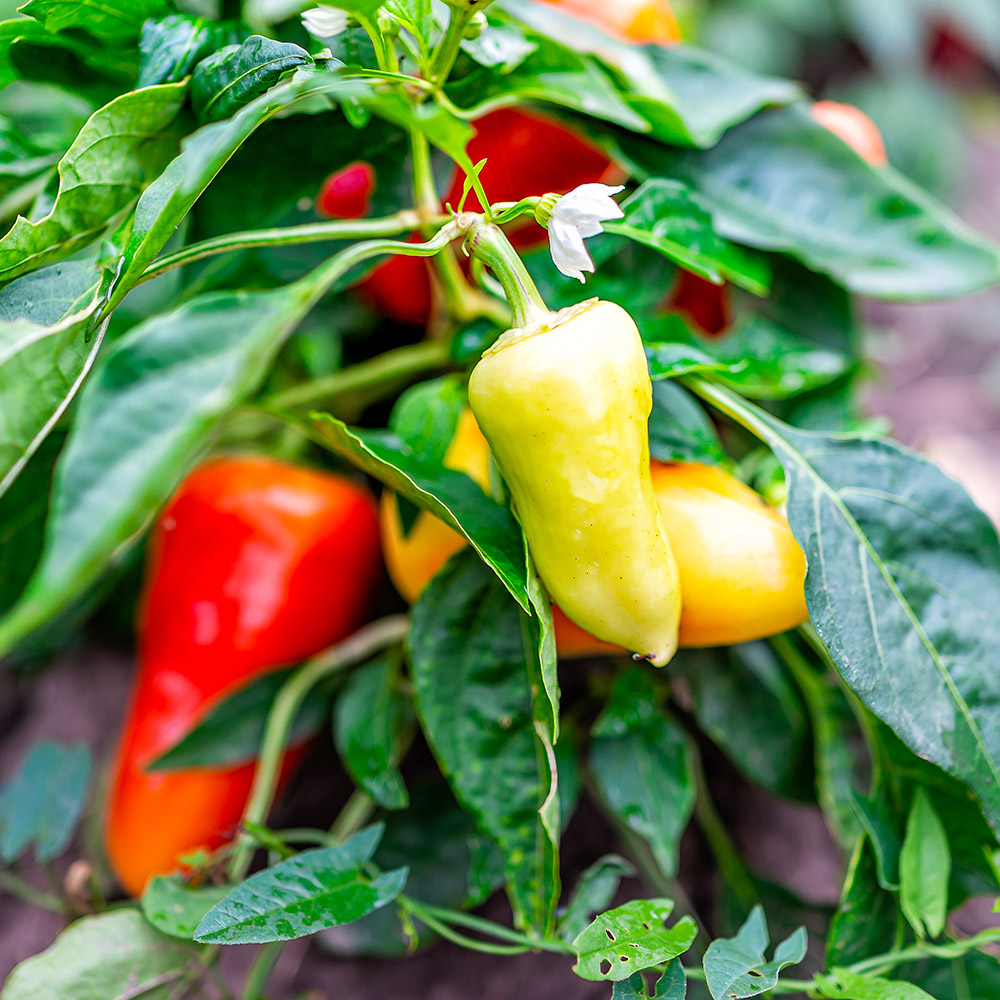Organic Vs. Synthetic Fertilizers: Which Is Best for Supporting Healthy Pepper Plants?
In the world of supporting healthy pepper plants, the choice in between synthetic and natural fertilizers stands as an essential choice with far-ranging implications. While both choices goal to provide essential nutrients to sustain plant development, the nuances of their effect on the soil, plant health, and the environment trigger a debate that mirrors throughout the gardening community. Comprehending the distinctive advantages and potential mistakes of each fertilizer kind is vital for pepper growers seeking to enhance their yields while maintaining an eco-conscious and sustainable technique.
Benefits of Organic Fertilizers
Organic fertilizers offer a sustainable and environmentally-friendly technique to beneficial pepper plants, giving crucial nutrients without the use of synthetic chemicals. These natural fertilizers are derived from natural sources such as compost, manure, bone meal, and algae, promoting dirt health and wellness and biodiversity. Unlike artificial plant foods, organic options launch nutrients gradually, ensuring a consistent and well balanced supply for pepper plants to prosper.
One significant advantage of natural fertilizers is their ability to boost soil framework and water retention. By boosting dirt wellness, organic fertilizers advertise helpful microbial task, which aids in nutrient uptake by pepper plants. Additionally, organic fertilizers reduce the danger of chemical run-off, safeguarding water sources from pollution and protecting the setting.
Additionally, natural plant foods add to long-lasting soil fertility by promoting the development of advantageous soil microorganisms. These microorganisms aid damage down raw material, releasing nutrients in a kind that is quickly available to pepper plants. best fertilizers for peppers. By promoting a healthy and balanced soil ecological community, natural fertilizers support sustainable pepper growing methods that profit both plants and the environment
Drawbacks of Synthetic Plant Foods
Synthetic fertilizers, unlike their organic counterparts, posture different disadvantages when utilized to nurture pepper plants, influencing both plant health and wellness and ecological sustainability. One major disadvantage of artificial fertilizers is their propensity to seep nutrients from the dirt rapidly. This rapid leaching can lead to nutrient discrepancies in the soil, triggering plants to suffer from shortages or poisonings. Furthermore, synthetic fertilizers can hurt advantageous soil organisms, such as earthworms and beneficial bacteria, interrupting the soil community's equilibrium.
Additionally, the overuse of artificial plant foods can add to water contamination. Excess plant foods not absorbed by plants can remove into water bodies, causing eutrophication, where algae blossoms diminish oxygen degrees in the water, harming marine life. Artificial plant foods are normally acquired from non-renewable sources, such as fossil fuels, adding to carbon exhausts and environmental deterioration during their manufacturing.
Nutrient Absorption Contrast
When comparing artificial and natural plant best fertilizers for peppers foods in terms of nutrient absorption, organic fertilizers have the benefit of giving an extra well balanced and slow-release resource of nutrients. Organic plant foods have a range of macro and micronutrients that are not just beneficial for the plants however additionally advertise healthy dirt microbial activity, which assists in nutrient uptake.
Furthermore, natural fertilizers improve soil structure and water retention capacity, permitting pepper plants to access nutrients extra successfully. This improved soil quality assists in root growth, making it possible for much better nutrient absorption. Artificial plant foods, although originally boosting plant growth because of their high nutrient focus, might impede lasting nutrient absorption by derogatory dirt health and wellness over time.
Ecological Influence Factors To Consider

On the other hand, artificial fertilizers, although often even more focused and immediately offered to plants, can have damaging effects on the setting otherwise used effectively (best fertilizers for peppers). Their manufacturing requires high power inputs, resulting in greenhouse gas emissions and adding to environment adjustment. Moreover, the overflow of excess synthetic plant foods can contaminate water sources, causing eutrophication and harming water communities.
Finest Plant Food Practices for Peppers
When fertilizing pepper plants, maximizing nutrient uptake and minimizing environmental effect are essential factors to consider. To attain this, it is necessary to adhere to ideal fertilizer methods tailored to the details requirements of pepper plants. One vital practice is to execute a soil test prior to applying any type of fertilizers. This test can figure out the pH degree of the dirt and recognize any nutrient deficiencies, assisting you in choosing the most ideal fertilizer formula.
One more essential technique is to fertilize pepper plants at the correct time. Commonly, peppers benefit from receiving plant food at growing and afterwards again when they begin to flower. Over-fertilizing can cause nutrition inequalities and harm the plants, so it view is vital to comply with recommended application prices.
In addition, picking a balanced plant food with an NPK ratio that suits pepper plants' demands is basic. Eventually, integrating natural and artificial fertilizers judiciously can assist support healthy and balanced pepper plants while minimizing ecological impact.
Final Thought

Organic plant foods supply a sustainable and environmentally-friendly method to beneficial pepper plants, giving crucial nutrients without the usage of artificial chemicals. Unlike artificial fertilizers, organic options launch nutrients slowly, ensuring a consistent and balanced supply for pepper plants to flourish.
Synthetic plant foods, in comparison to their organic equivalents, present numerous disadvantages when used to nurture pepper plants, affecting both plant health and environmental sustainability. When comparing natural and artificial plant foods in terms of nutrient absorption, organic fertilizers have the advantage of giving a much more well balanced and slow-release resource of nutrients.Moreover, organic plant foods improve soil structure and water retention capability, allowing pepper plants to access nutrients more effectively.